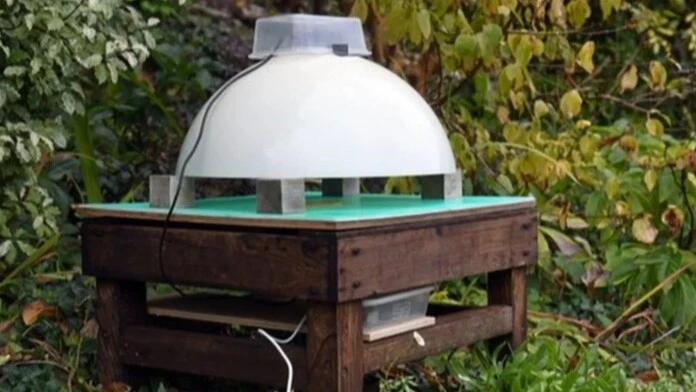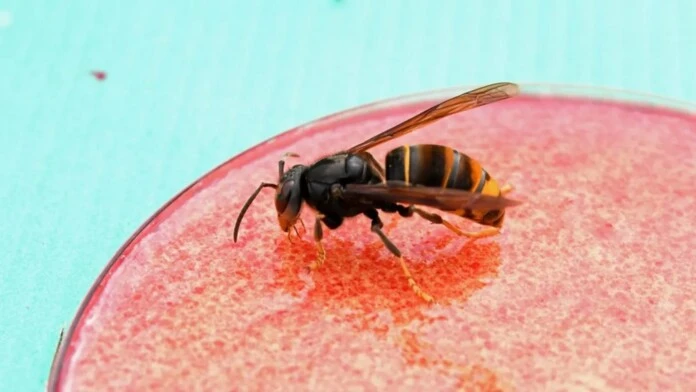In a groundbreaking application of AI technology, scientists at the University of Exeter have developed a new system, VespAI, capable of detecting Asian hornets with almost perfect accuracy. These hornets are a serious threat, known for destroying honey bee colonies and causing severe allergic reactions in humans with their stings.
Unlike the more notorious “murder hornets” that invaded the US, Asian hornets are an equally dangerous pest, and their rapid spread in the UK in 2023 raised alarms. The University of Exeter’s system aims to provide a more effective solution than the current method of citizen reporting, which often results in misidentification of the species.
The VespAI system works by attracting hornets using a device shaped like an upturned punch bowl, with a small camera mounted on top to capture images of passing hornets. The AI then analyzes the image to determine if the insect is an Asian hornet. This system is designed to be cost-effective and versatile, allowing use by scientists, game wardens, and beekeepers. Beekeepers will receive alerts if the system identifies an Asian hornet in their vicinity, enabling them to take action quickly.

What sets VespAI apart is its non-invasive nature: it does not kill non-target insects, and its primary goal is to track and locate hornet nests, the most effective way to eliminate the problem. Field tests have shown promising results, and the system has been hailed as a potential game-changer in managing this invasive species.
Asian hornets have already spread across various European countries, and their impact on agriculture and human health has been significant. The VespAI system could help combat this growing problem in a more precise and sustainable way, marking a major step forward in using AI for environmental conservation and pest management.
